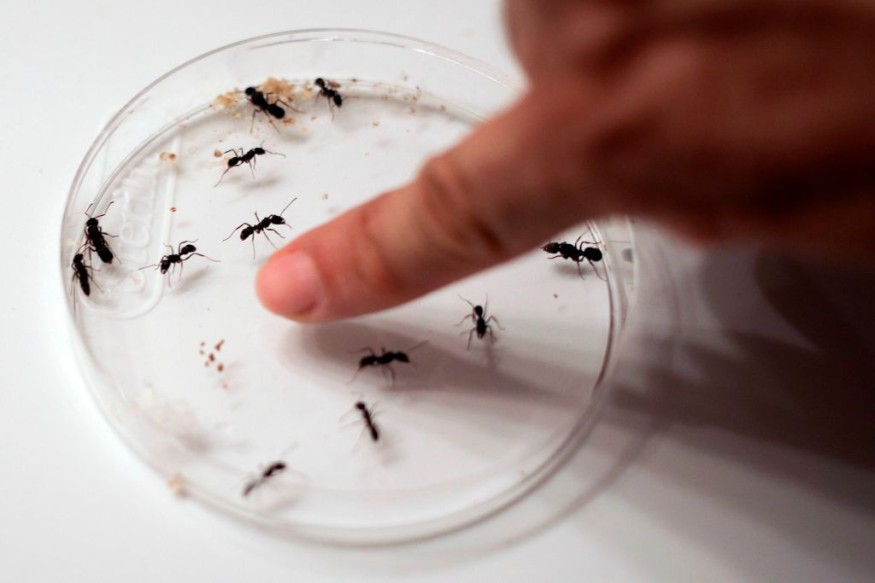Researchers discovered the zombie-like behavior of ants after Lancet Liver Fluke Parasite attacked their brains. The study analyzed over 1264 individual ants.
The study noted that brain-altering parasites is common in many studies. However, there is a need to look into the possible environmental factors on the host behavior, especially for ants.
The study was published in Behavioral Ecology journal.
The researchers studied the impacts of environmental factors, including temperatures, humidity, light and time of the day.
Ant zombie-like behavior

Researchers observed the impacts of the lancet liver fluke, Dicrocoelium dendriticum, on infected ants.
According to the CDC, the parasite can be found in North America, North Africa, Europe and Asia.
The Lancet Liver Fluke can infect ants, sheep, cattle, goats and even humans. It is also called a brain-altering parasite because it was found to control the ant's brain.
The study observed the ants in the Bidstrup Forests near Roskilde, Denmark.
According to Brian Lund Fredensborg, they tracked the ants' activity to observe the effects of temperature, light, humidity and time of the day.
They discovered that the infected ants have temperature sensitivity that protects them from possible exposure to light or sunlight.
Associate Professor Lund Fredensborg, and Simone Nordstrand Gasque conducted the study.
Gasque is a Ph.D. student at Wageningen University in the Netherlands.
In addition, the researchers observed that the infected ants attached themselves to the blade of the grass. On a warm day, the ants' behaviors changed.
Symptoms: How does the parasite infect the possible host
According to the reports, the Lancet Liver Fluke Parasite can attack the ants' brains. However, there is only one possible to enter the brain. The parasite can move to the host's abdomen, affecting the small intestine and digestive organs.
Because the ant is infected, it could likely affect the grazers, including a sheep or a cow. Animals can suffer from liver problems, gastrointestinal distress and other infections.
It can cause infection in the bile ducts and gall bladder.
There is also a possibility that humans and pets become infected when they consume infected ants. Other symptoms people can experience are the following:
- Intense infection
- Irritation
- Swollen Abdomen
- Potential diarrhea or watery diarrhea
- Constipation
- Anemia
- Painful liver
The clinical symptoms can become challenging for human patients and possibly painful. As a result, they should immediately go to nearby clinics or hospitals to help them deal with the diarrhea or pain.
The eggs in the stomach waiting for bigger transmission can bring the symptoms of the lancet liver fluke or Dicrocoelium dendriticum
According to the researchers, the parasite can also emerge in temperate areas. The discovery can also help researchers unlock which chemical substances affect the ants or cause them to act like zombies.
Related Article : Deadly Brain-Eating Amoeba Kills Swimmer in Austin Area Lake, Texas
For more similar stories, don't forget to follow Nature World News.
© 2025 NatureWorldNews.com All rights reserved. Do not reproduce without permission.





